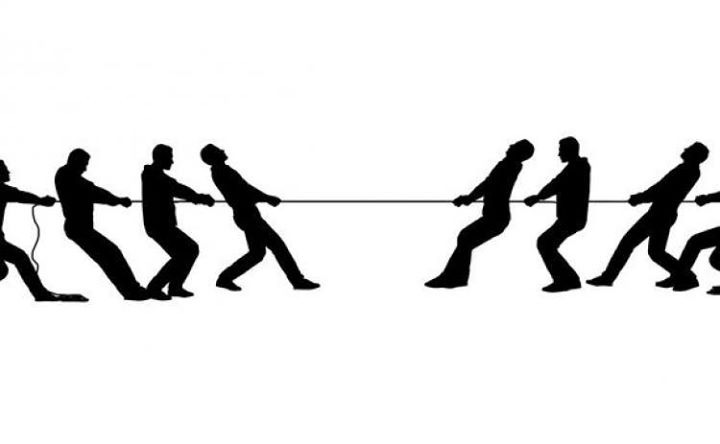The Ringelmann Effect

Life is not designed to be easy or efficient. If it was, it wouldn't be worth living.
Throughout history, philosophers have sought to design the “optimum” society. Since many of the early philosophers were scientists, logicians and mathematicians, many from the age of Plato – and even into the 17th century – tried to conceptualize societies that could exist with mathematical efficiency and precision – Hobbes’ society in Leviathan was based on a geometric proof because mathematics was seen as a “pure” science and the ultimate in Nature’s logic, even more so than religion (thus providing the reason for the ongoing conflicts between scientists and religion).
Man sought to create a perfect order out of what they perceived as chaos.
Progressives brought this idea forward in the late 1800’s as the industrial revolution was beginning in earnest in America. “Leading intellectuals also shaped the progressive mentality. In Dynamic Sociology (1883) Lester Frank Ward laid out the philosophical foundations of the Progressive movement and attacked the laissez-faire policies advocated by Herbert Spencer and William Graham Sumner. In The Theory of the Leisure Class (1899), Thorstein Veblen attacked the “conspicuous consumption” of the wealthy. Educator John Dewey emphasized a child-centered philosophy of pedagogy, known as progressive education, which affected schoolrooms for three generations.” (Via Wikipedia). Many “progressives” like Teddy Roosevelt and Woodrow Wilson adopted and tried to adapt the “scientific management” theories of Fredrick Winslow Taylor to society and government.
The influence of Taylor cannot be overstated.
Taylor was a mechanical engineer and his focus, like that of philosopher/mathematicians like Hobbes, was to create precision and efficiency in pursuit of the goal of order and productivity. Taylor thought the only solution was to be found in transferring control from workers to management. He set out to increase the distinction between mental (planning the work) and manual labor (executing the work). He believed that detailed plans specifying the job, and how it was to be done, were to be formulated by management and communicated to the workers and had very precise ideas about how to introduce his system:
“It is only through enforced standardization of methods, enforced adoption of the best implements and working conditions, and enforced cooperation that this faster work can be assured. And the duty of enforcing the adoption of standards and enforcing this cooperation rests with management alone.”
Taylor thought workers to be incapable of understanding what they were doing and even proposed that this was true even for very simple tasks. In his book, The Principles of Scientific Management, Taylor writes:
“…the science of handling pig-iron is so great and amounts to so much that it is impossible for the man who is best suited for this type of work to understand the principles of this science, or even work in accordance of these principles without the aid of a man better educated than he is.”
Taylor’s theories (called Taylorism) have a limiting factor that prevents this type of management practice from being successful – that limit was effectively eliminated in the self-managed work teams of the Toyota Production System – which are the antithesis of Taylor’s model. While Taylor’s work was the precursor to processes like the Toyota Production System, TPS is different in significant ways. Toyota’s system added a degree of respect (verging on reverence) for the individual and unlike Taylor, recognized that worker education and advancement goes hand in hand with defined “standard work” processes and productivity. The “progressives” adopted only Taylor’s “command and control” philosophies in government and governance and left out the inconvenient individual focus and “productivity” aspects that TPS recognizes are necessary.
Taylor’s model and any type of large scale coerced collectivist entity is subject to span of control limits – essentially a lack of scalability.
Why?
Because people, working in large numbers, are subject to the Ringelmann Effect:
“The size question has been asked since the dawn of social psychology,” says Wharton management professor Jennifer S. Mueller, recalling the early work of Maximilian Ringelmann, a French agricultural engineer born in 1861 who discovered that the more people who pulled on a rope, the less effort each individual contributed.”
Progressivism is advertised as forward looking and visionary. While its rhetoric may well be – in application it is quite regressive and reactionary, adopting none of the modern management theories that focus on the liberation of the mind of the worker rather than simply chaining them mindlessly to a defined process. Somewhat ironically, “progressivism” is solidly anchored in the past rather than the future. Where business and industry have learned to exalt the individual, “progressivism” continues to try to force people into a political version of Taylorism, a forced equality by lowest common denominator.
The theories of “progressivism” and its ideological progenitor, Marxism, are best consigned to the dustbin of history.

